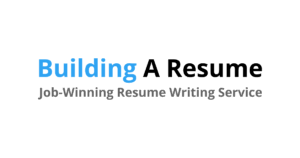
Making your resume stand out is crucial in a competitive job market. Here are some tips to help you create a standout resume:
-
Tailor your resume for each job: Customize your resume for each position you apply to by emphasizing the skills and experiences most relevant to the job description. This shows employers that you understand their needs and are a good fit for the role.
-
Use a professional format: Choose a clean and professional format
-
Use a legible font (e.g., Arial, Calibri, or Times New Roman).
-
Ensure consistent formatting throughout the document.
-
https://building-a-resume.com/
-
-
Create a strong summary or objective statement: Write a concise and compelling summary at the beginning of your resume that highlights your key qualifications and career goals. This gives employers a quick overview of what you bring to the table.
-
Highlight your achievements:
-
-
Focus on accomplishments rather than just listing duties.
-
Use quantifiable metrics to demonstrate the impact of your work (e.g., “increased sales by 20%”).
-

-
Include relevant keywords: Many employers use applicant tracking systems (ATS) to screen resumes. To ensure your resume passes through these systems, include relevant keywords from the job description.
Showcase skills:
- Create a dedicated section for skills that align with the job requirements.
- Include both hard skills (technical skills) and soft skills (communication, teamwork).
Use action verbs:
Start each bullet point with a strong action verb to convey a sense of accomplishment and energy. For example, use words like “achieved,” “implemented,” or “managed.”
Quantify your experience:
Whenever possible, use numbers to quantify your achievements. For example, instead of saying “improved team efficiency,” say “implemented a new process that improved team efficiency by 15%.”
- Include relevant education and certifications: Highlight your educational background and any relevant certifications that enhance your qualifications for the position.
- Add a professional touch:
- Include a professional email address.
- Add a LinkedIn profile link, if applicable.
- Consider creating a personal logo or using a subtle design element to make your resume visually appealing.
- Use a consistent and professional tone: Maintain a professional and positive tone throughout your resume. Avoid using first-person pronouns (I, me, my) and focus on the value you can bring to the employer. https://www.youtube.com/shorts/8r6RFlKlhp
- Include a portfolio or link to work samples: If applicable, include a link to an online portfolio or attach work samples that showcase your skills and achievements.
-
Edit and proofread: Eliminate typos, grammatical errors, and formatting issues. Consider asking a friend or mentor to review your resume for feedback.
Remember, your resume is often the first impression you make on a potential employer, so investing time and effort into creating a compelling document is essential.

Here’s a list of things not to do on a resume:
- Don’t use an unprofessional email address: Make sure your email address is simple and professional. Avoid using nicknames or overly casual email addresses.
- Avoid including unnecessary personal information: Information such as your age, marital status, or Social Security number is typically not required and can lead to potential bias.
- Steer clear of using a one-size-fits-all resume: Tailor your resume for each job application by highlighting the skills and experiences most relevant to the specific position.
- Don’t use a generic objective statement: Instead of a vague objective, use a career summary or a professional profile that highlights your skills and accomplishments.
- Avoid using a small font or dense paragraphs: Make your resume easy to read by using a clean, legible font and organizing information with bullet points. Aim for a professional look and feel.
- Don’t include irrelevant work experience: Focus on relevant work experience that aligns with the job you’re applying for. Leave out jobs that don’t contribute to your qualifications for the position.
- Avoid using first-person pronouns: Resumes should be written in a formal tone, so refrain from using “I,” “me,” or “my.” Instead, use concise statements that begin with strong action verbs. https://www.tiktok.com/@resumeguy/video/7312248210964106539?is_from_webapp=1&sender_device=pc&web_id=7298513595218396718
- Don’t provide too much information: Keep your resume concise and relevant. Employers often have limited time to review each resume, so focus on key accomplishments and experiences.
- Avoid including references on your resume: Save space by omitting the “References available upon request” line. Employers assume you can provide references if requested. https://www.tiktok.com/@resumeguy/video/7312248210964106539?is_from_webapp=1&sender_device=pc&web_id=7298513595218396718
- Don’t lie or exaggerate your qualifications: Be honest about your skills and experiences. Exaggerating or providing false information can lead to credibility issues during the hiring process.
- Steer clear of using unprofessional language or slang: Maintain a professional tone throughout your resume. Avoid informal language, abbreviations, or slang.
- Don’t use a confusing or overly complex format: Keep your resume’s format simple and easy to follow. Use clear headings, bullet points, and consistent formatting.
- Avoid listing irrelevant hobbies: Unless your hobbies directly relate to the job, consider omitting them. Focus on professional achievements and skills.
- Don’t forget to proofread: Spelling and grammar errors can make a negative impression. Always proofread your resume carefully or ask someone else to review it for you.
By avoiding these common pitfalls, you can increase the chances of your resume standing out in a competitive job market.


